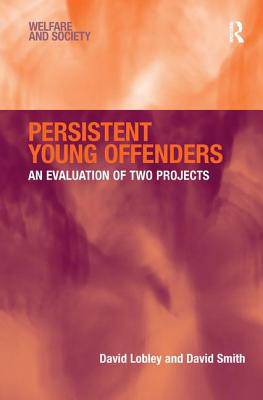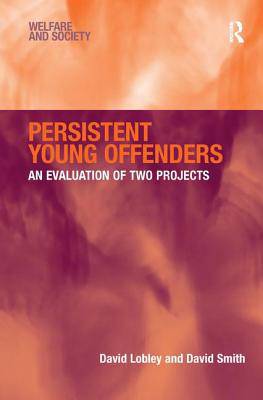
- Afhalen na 1 uur in een winkel met voorraad
- Gratis thuislevering in België vanaf € 30
- Ruim aanbod met 7 miljoen producten
- Afhalen na 1 uur in een winkel met voorraad
- Gratis thuislevering in België vanaf € 30
- Ruim aanbod met 7 miljoen producten
Zoeken
€ 195,95
+ 391 punten
Omschrijving
Based on some of the most interesting research of the last ten years, this book discusses effective practice in work with persistent young offenders. It contrasts two major evaluations of projects for juvenile offenders, one of which was successful and the other less so. The projects, Freagarrach and CueTen, were funded by The Scottish Office and the Scottish Executive. Freagarrach was evaluated over five years from 1995 and CueTen over three years (its entire lifespan) from 1996. This book makes the findings of these projects available to a wider readership, setting them in a wider discursive framework than is appropriate in a government report. The authors identify the factors that made Freagarrach a more successful project than CueTen, arguing that an understanding of these factors is important in drawing general conclusions from the experience of the two projects, and that this is particularly the case because some of these factors have received little attention in recent discussions of 'what works' in community-based programmes for offenders. This is a detailed and thorough study of work with juvenile offenders, which will be of particular value to those interested in less punitive approaches. It will be of interest both to practitioners and to academics in criminology, social policy and social work.
Specificaties
Betrokkenen
- Auteur(s):
- Uitgeverij:
Inhoud
- Aantal bladzijden:
- 164
- Taal:
- Engels
- Reeks:
Eigenschappen
- Productcode (EAN):
- 9780754641834
- Verschijningsdatum:
- 15/11/2007
- Uitvoering:
- Hardcover
- Formaat:
- Genaaid
- Afmetingen:
- 156 mm x 233 mm
- Gewicht:
- 459 g

Alleen bij Standaard Boekhandel
+ 391 punten op je klantenkaart van Standaard Boekhandel
Beoordelingen
We publiceren alleen reviews die voldoen aan de voorwaarden voor reviews. Bekijk onze voorwaarden voor reviews.











